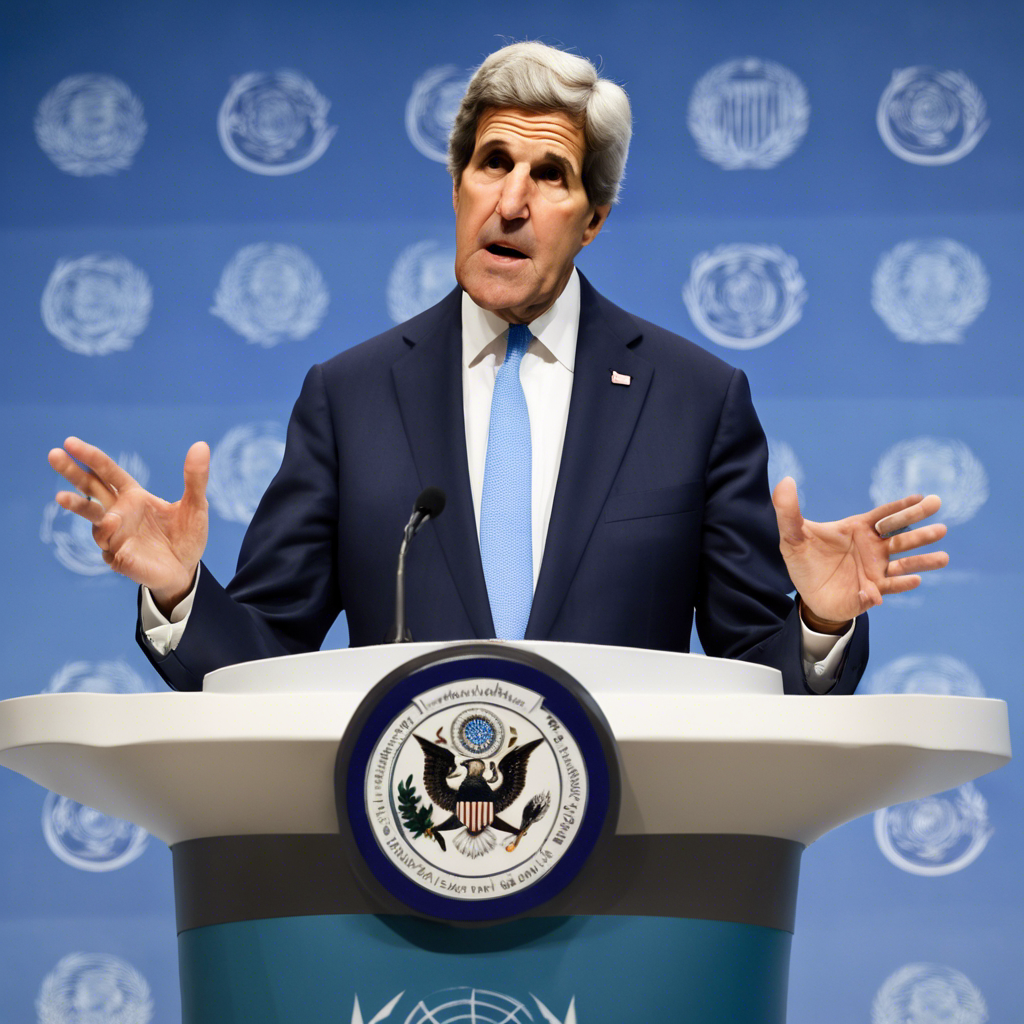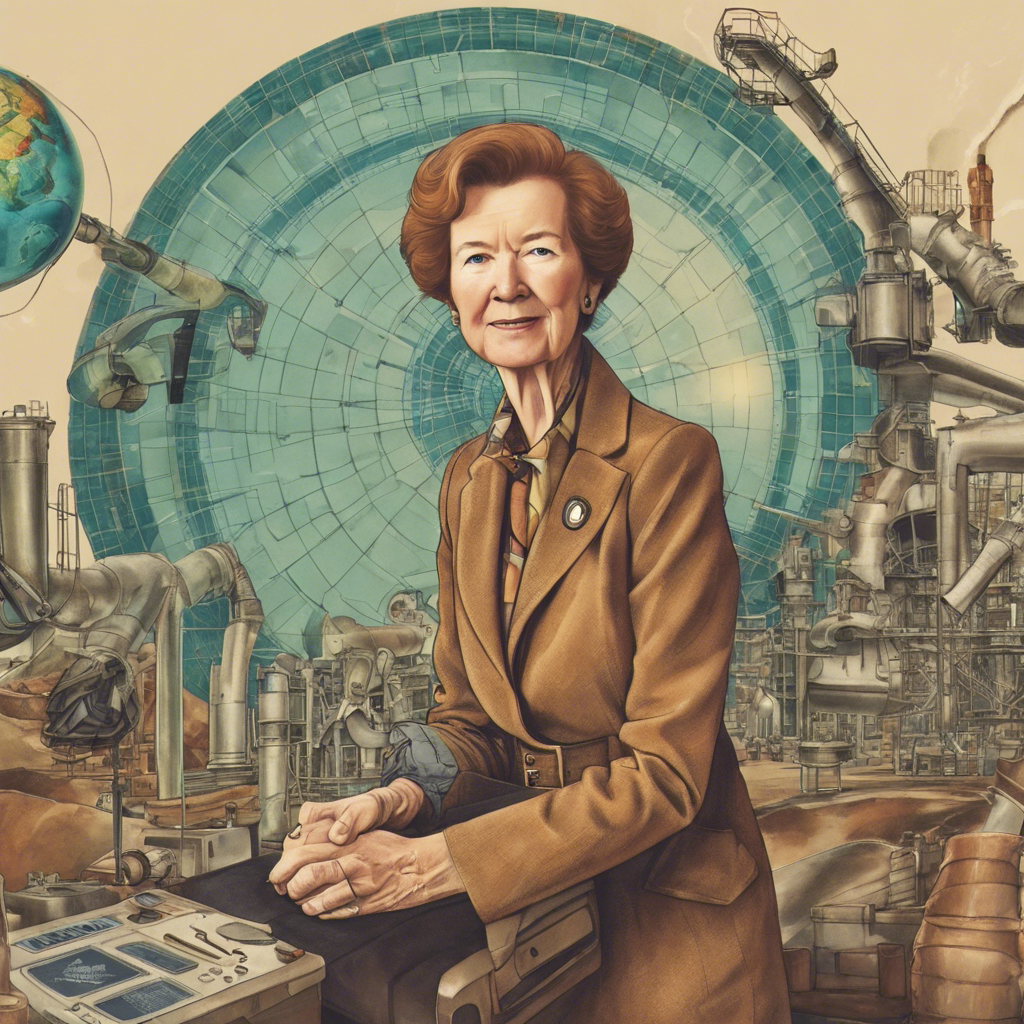U.S. Climate Envoy John Kerry Urges Focus on 1.5 Degree Goal Amid Fossil Fuel Phase-Out Debate at COP28

U.S. climate envoy John Kerry emphasizes the importance of keeping global warming to 1.5 degrees Celsius, countering claims made by COP28 President Sultan Al-Jaber that there is “no science” behind calls for a phase-out of fossil fuels.
The ongoing COP28 climate summit in Dubai has been marked by a heated debate surrounding the role of fossil fuels in sustainable development. The controversy began when COP28 President Sultan Al-Jaber suggested during a live online event that a phase-out of fossil fuels would hinder progress and lead to a regression in society. However, U.S. climate envoy John Kerry swiftly countered this claim, emphasizing the scientific evidence supporting the need to reduce emissions and keep global warming to 1.5 degrees Celsius. This clash of perspectives highlights the challenges faced by world leaders as they strive to address the urgent issue of climate change.
Kerry Refutes Al-Jaber’s Claims and Stresses the Importance of 1.5 Degrees
During an interview with CNBC’s Tania Bryer at the COP28 climate summit, John Kerry dismissed Sultan Al-Jaber’s assertion that there is “no science” behind calls for a fossil fuel phase-out. Kerry pointed out that the G7 countries had already voted in favor of phasing out unmitigated fossil fuel emissions. He emphasized that the scientific consensus supports the goal of limiting global warming to 1.5 degrees Celsius. Kerry argued that every decision made by countries should be guided by whether it advances this goal or takes the world in the wrong direction.
COP28 Responds to Al-Jaber’s Comments
A spokesperson for COP28 responded to Al-Jaber’s comments, stating that the COP president was quoting the science and leading climate experts. They highlighted that the International Energy Agency (IEA) and the Intergovernmental Panel on Climate Change (IPCC) scenarios acknowledge the role of fossil fuels in the future energy system, albeit a smaller one. The spokesperson also accused critics of attempting to undermine the tangible achievements of the COP28 presidency.
The Importance of Fossil Fuel Phase-Out in Achieving Success at COP28
The debate over fossil fuel phase-out has become a focal point at the COP28 summit. Many participants argue that the conference can only be considered a success if it results in a commitment to phase out all fossil fuels. Fossil fuel combustion is the primary driver of the climate crisis, and reducing its use is crucial to limit global warming. The language of the final agreement, expected by the end of the conference, will be closely scrutinized. A commitment to “phase out” would require a complete shift away from fossil fuels, while a “phase down” would indicate a reduction in usage without an absolute end.
Early Victories and Decarbonization Efforts at COP28
Despite the controversy surrounding Al-Jaber’s comments, COP28 has seen some early successes. Delegates adopted a new fund to assist nations affected by climate change damages, marking a significant achievement. Additionally, nearly 120 governments pledged to triple renewable energy capacity by 2030, signaling a collective effort to decarbonize the energy sector. These initiatives demonstrate the commitment of countries to combat climate change and transition to cleaner energy sources.
Conclusion:
The clash between John Kerry and Sultan Al-Jaber at the COP28 climate summit highlights the ongoing debate surrounding the role of fossil fuels in achieving sustainable development. While Al-Jaber’s comments have drawn criticism from climate scientists, Kerry and others argue that the scientific consensus supports the urgent need to reduce emissions and limit global warming to 1.5 degrees Celsius. As the conference progresses, the world will be watching closely to see if COP28 results in a commitment to phase out fossil fuels, signaling a significant step toward a more sustainable future.










